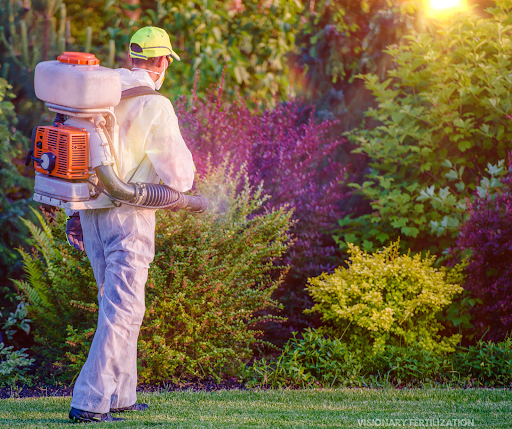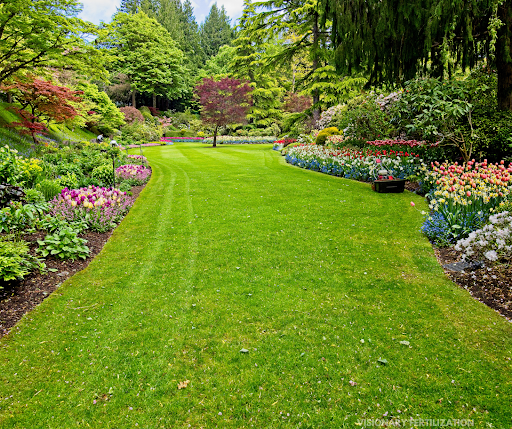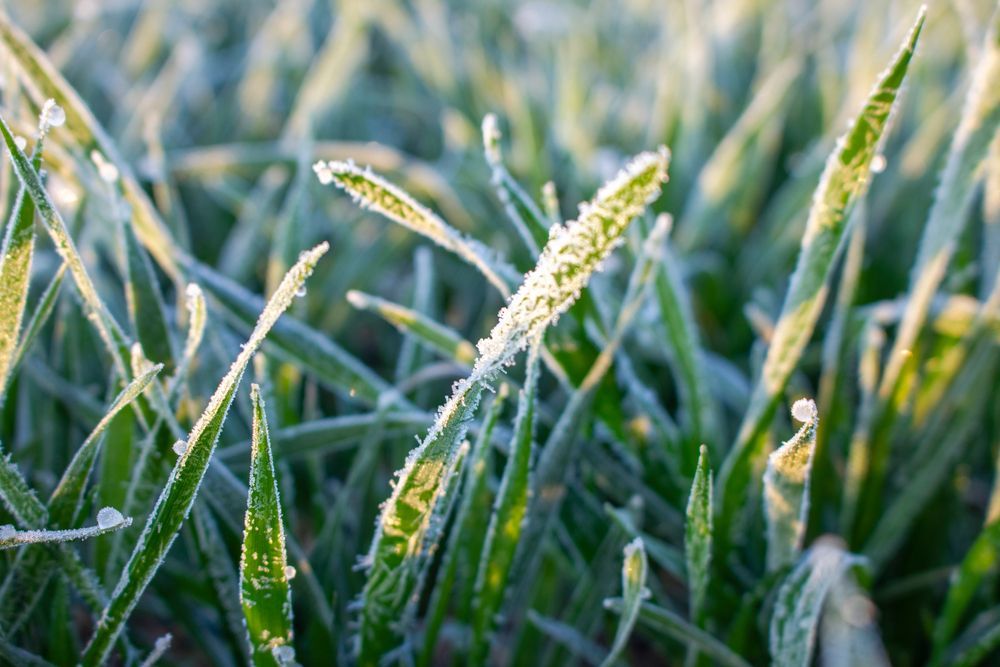VETERAN OWNED
November 21, 2024
Everything to Know About Bermuda Grass in Michigan: Is It Right for Your Lawn?
Bermuda grass is known for its lush green appearance and tolerance for hot climates, which is why it’s a popular choice across the southern United States. But can it thrive in Michigan? Here’s everything you need to know about Bermuda grass, from its characteristics to maintenance tips and challenges for growing it in cooler climates like Michigan.
What is Bermuda Grass?
Bermuda grass (Cynodon dactylon) is a warm-season grass that originated in tropical regions. It’s recognized for its fine texture, vibrant green color, and rapid growth rate. Known for its resilience, Bermuda grass spreads quickly through runners and rhizomes, forming a dense mat that’s ideal for lawns, sports fields, and golf courses.
Why Bermuda Grass is Challenging in Michigan’s Climate
Bermuda grass thrives in hot, sunny conditions and is ideally suited for areas with long, warm summers. It’s commonly grown in USDA hardiness zones 7 to 10, where temperatures remain consistently warm. However, Michigan’s climate, particularly in zones 5 and 6, presents challenges for Bermuda grass:
- Cold Temperatures: Bermuda grass goes dormant and turns brown during cool months, which in Michigan can last up to six months or more. Harsh winters can also lead to winterkill, where the grass does not survive the cold.
- Short Growing Season: Michigan has a shorter summer season, which limits Bermuda grass's active growth period.
- Soil Suitability: Michigan soil is often heavier and may require amendments to meet Bermuda grass’s needs for warmth and drainage.
Because of these factors, Bermuda grass is usually not the first choice for Michigan lawns. However, some homeowners still experiment with it, especially in the state’s southern regions where temperatures are somewhat milder.
Pros of Bermuda Grass for Michigan Lawns
Despite the challenges, Bermuda grass offers unique benefits that make it appealing for certain areas and types of lawns:
- Heat and Drought Tolerance: Bermuda grass is incredibly drought-tolerant once established, requiring less water than many cool-season grasses.
- Low Maintenance: With proper care, Bermuda grass forms a thick, uniform lawn that naturally resists weeds.
- Durability: It’s resilient to foot traffic, making it a good choice for high-activity areas, like backyards where children or pets play frequently.
Cons of Bermuda Grass in Michigan
The disadvantages of Bermuda grass in a northern state like Michigan often outweigh the benefits for most homeowners:
- Winter Dormancy: Bermuda grass turns brown and goes dormant in cooler temperatures, which means it may look dead for much of Michigan’s fall, winter, and even spring.
- Cold Sensitivity: Prolonged exposure to temperatures below 50°F can lead to winterkill, where large patches of Bermuda grass die and require replacement.
- High Sunlight Needs: Bermuda grass requires full sun and struggles in shaded areas, which can be problematic in Michigan's residential areas with tall trees.
Tips for Growing Bermuda Grass in Michigan
If you’re set on growing Bermuda grass despite the challenges, here are a few tips to increase your chances of success:
1. Plant in Full Sun
- Bermuda grass thrives in direct sunlight. Avoid shaded areas, as even partial shade can stunt growth and lead to thin patches.
2. Improve Soil Conditions
- Bermuda grass prefers well-draining, sandy soil. In Michigan, where clay-heavy soil is common, consider amending the soil with sand or compost to improve drainage and warmth retention.
3. Plant in Late Spring
- For best results, plant Bermuda grass seed or sod in late spring, after the last frost. This gives the grass an entire summer to establish roots before winter arrives.
4. Fertilize Regularly
- Bermuda grass is a heavy feeder. Apply a nitrogen-rich fertilizer in late spring and summer to promote strong growth. Avoid fertilizing in the fall, as this encourages growth right before dormancy, making the grass more vulnerable to cold damage.
5. Water Sparingly but Deeply
- Water Bermuda grass deeply once or twice a week, rather than frequent shallow watering. This promotes root growth, which helps the grass survive winter dormancy.
6. Prepare for Dormancy
- As temperatures cool in the fall, reduce watering and stop fertilizing. You can overseed with a cool-season grass, such as rye, for a green lawn year-round, though this requires extra care.
Alternatives to Bermuda Grass for Michigan Lawns
Because Bermuda grass struggles in cooler climates, it may be worth considering alternative grasses better suited for Michigan’s weather. Here are a few:
- Kentucky Bluegrass: A popular choice for northern lawns, Kentucky bluegrass thrives in cool weather, has good shade tolerance, and forms a dense, green lawn.
- Tall Fescue: Known for its drought tolerance and durability, tall fescue is suitable for cooler climates and handles Michigan winters well.
- Perennial Ryegrass: Fast-growing and ideal for overseeding, perennial ryegrass provides a quick solution for lush green grass and adapts well to Michigan’s climate.
Frequently Asked Questions About Bermuda Grass in Michigan
1. Will Bermuda grass survive Michigan winters?
Bermuda grass can survive some winters, especially in southern Michigan, but it will likely go dormant and may suffer winter damage or die back during extremely cold spells.
2. When should I plant Bermuda grass in Michigan?
The best time to plant Bermuda grass is late spring when temperatures consistently reach 70°F or higher. This gives it time to establish before the cold returns.
3. Can I mix Bermuda grass with other types of grass?
Yes, some homeowners overseed Bermuda grass with cool-season grasses like ryegrass for year-round green. However, this requires careful maintenance to manage different growth cycles.
Is Bermuda Grass Right for Your Michigan Lawn?
While Bermuda grass has its advantages, the challenging climate in Michigan means it might not be the best choice for year-round green. For homeowners seeking a resilient, low-maintenance lawn in Michigan, other cool-season grasses like Kentucky bluegrass or fescue are better suited for the conditions. However, if you’re interested in experimenting with Bermuda grass, these tips and tricks can help you maintain a beautiful lawn—even in Michigan.
Need Help with Your Lawn? Contact Visionary Fertilization Today!
If you're unsure about the right grass type for your lawn, or if you need assistance with seeding, fertilizing, or general lawn care,
Visionary Fertilization is here to help.
Contact us today for expert advice and services to keep your lawn healthy and green, no matter the season!


All Rights Reserved | Visionary Fertilization | Powered By Aletheia Digital


